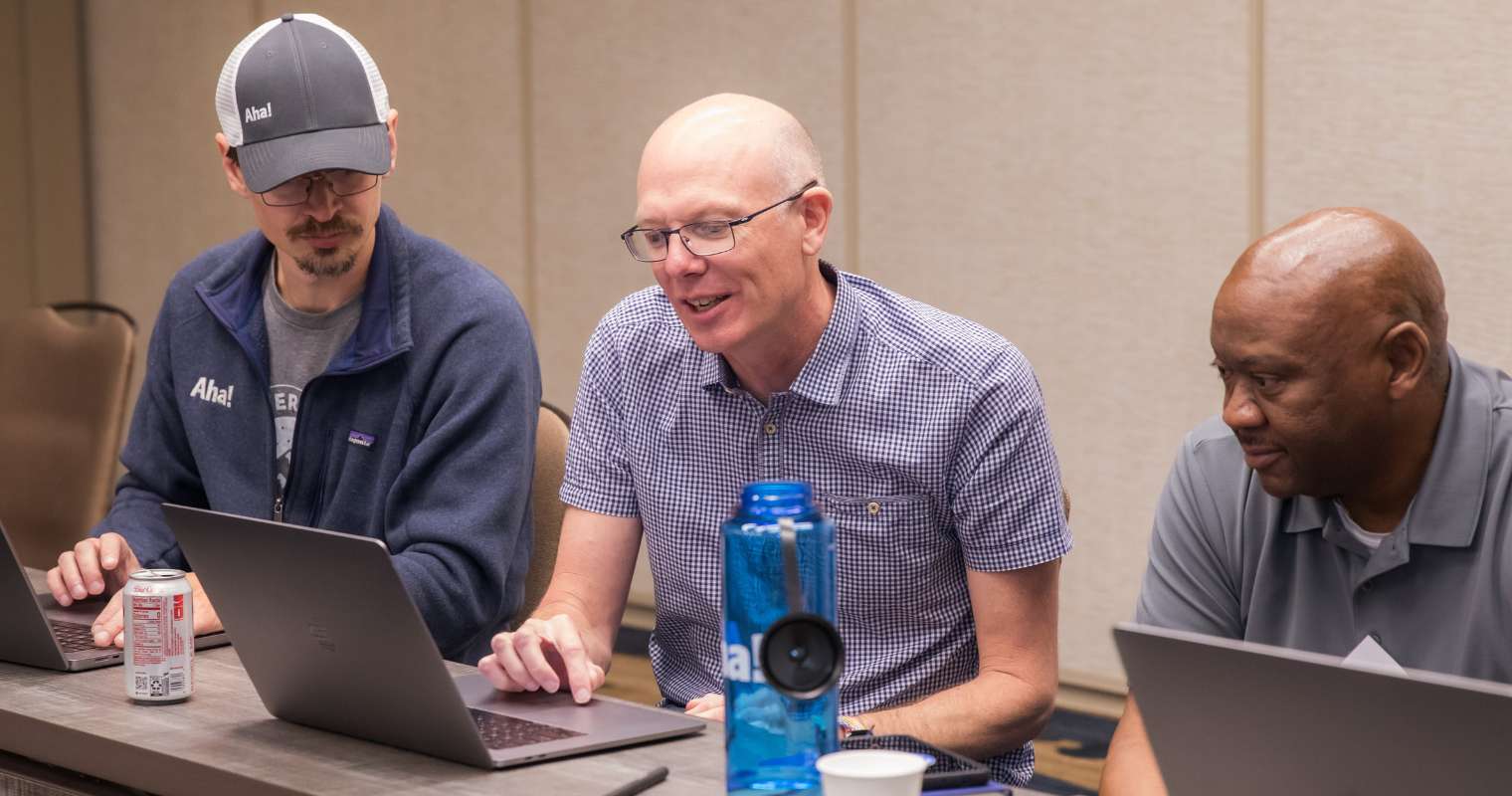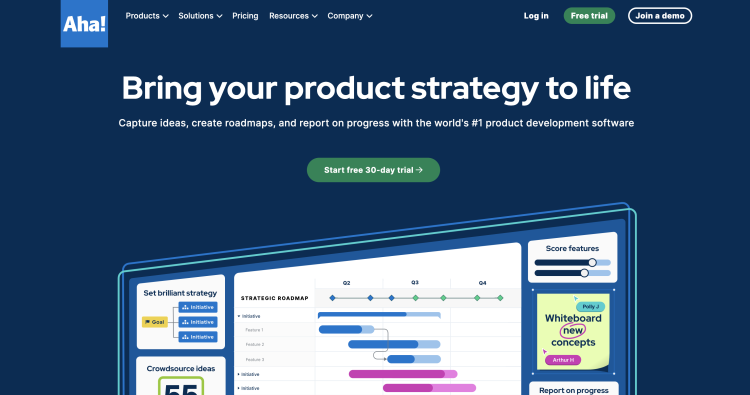
Brian de Haaff enjoying the snow in Truckee, California | Photo by de Haaff family
Should I do another live event?
I was not sure what to expect. I knew the journey of bootstrapping a different type of high-growth software company was worth sharing. And after publishing more than 900 blog posts, I was ready for a new way to connect. But would people be interested in a biweekly newsletter?
You surprised me. Since the first newsletter in January 2023, more than 64,000 people subscribed to The Startup Adventure. Wow.
I was even more surprised when people started asking to interact more directly. Some folks suggested a live Q&A session. So when I was thinking of a way to honor the first year of this newsletter adventure, I figured why not invite you to join me? Last week I hosted a live version of The Startup Adventure. More than 250 people registered to join and many folks submitted questions in advance. I was (as always) impressed with the depth of your thinking and curiosity.
Before I get into the abbreviated notes of what we discussed, I think it is worth repeating the caveat that I gave at the beginning of the session. My co-founder Chris and I are somewhat contrarian by nature. That can be good and that can be bad — but it makes us different in terms of how we started Aha! and how we operate the company.
The answers below are just one guy's opinion based off a 10-year stretch of running a high-growth software company.
My truth is not necessarily your truth. This is why I always encourage people to find your own voice. Find your own authenticity. Find what makes you unique and special. Do not get too wrapped up in what others think. Keep working to refine your individual perspective.
With that said, here is my perspective on the following themes that popped up from your collective questions:
Careers
Kassie Y. asked, "What resources would you recommend for beginners in product management and innovation?"
There were many variations on this theme. Folks want to know how to grow their careers. And I think the answer is fairly simple. It is a general one, that can apply to many fields but especially to product management. You need to think deeply about problems. And in some ways, you need to think and feel those problems. For those of us who work in technology companies that often comes through the broad use of technology — we are all users and customers of many different applications. There is insight to be gleaned.
My other suggestion is probably the most important. It might also be the most unconventional.
When I was in graduate school, I started reading The Wall Street Journal. I read it every day, every morning. It was probably the most important thing I did during those years because it gave me a breadth of understanding of markets, business, and emerging trends that you just cannot get anywhere else.
In today's world — where information comes at us so quickly, so visually — I think we have lost the value of longer-form pieces and deeper thought. So I encourage you to read as much as you can from different sources. The Wall Street Journal is a good place to start.
Leadership
Steve K. asked, "How do you change an organization's mindset about a complex issue?"
Amol M. asked, "How would you deal with the sloth of decision-making in large companies with many stakeholders?"
Frank F. asked, "How do you turn around a demoralized staff?"
These are different questions obviously. But from my experience all require a similar approach:
Clearly articulate challenges. Get aligned on which ones are most pressing.
Clearly articulate goals. Get aligned on which ones are worth pursuing.
Share actions. Define what you think needs to happen and when to achieve those goals.
Exhibit a high "say/do" ratio. If you say you are going to do something, actually do it.
If you are in a leadership position and modeling behaviors, this last step is essential for driving change. Remember that there are all types of reasons that organizations move slowly or lose motivation. Fear of failure is often at the top of the list.
When you are trying to change how people operate, you need to make it relevant to them. How will the movement towards new goals benefit the people you are trying to work with?
When you are hoping to reinvigorate a demoralized team, you need to do the same thing. Why is the team demoralized? There are two common reasons in my experience. Goals unclear and people are left chasing fires. Or people work towards goals but feel it has no impact, that they are working on the wrong things. Understand the "why" behind the pain and you can begin to orient around achievement.
Productivity
Jordan P. asked, "What processes and culture separate great product development teams from just OK ones?"
There is no one process that sets a team apart. The best ones operate from a place of intrinsic motivation. The difference to me is about the team's clarity of goals, trust in each other, ability to take action, depth of curiosity, and adaptability. This requires great vulnerability — without shame.
Product building does not stop. You need to really love the work because it is all encompassing. There are constant improvements to be made and you need to be able to make them at pace, with pleasure. Joy for the job is an essential ingredient in the secret sauce of productivity.
Roadmaps
Juliette K. asked, "How do you make decisions about prioritizing your roadmap confidently?"
You have to look at it from multiple lenses separately and then bring those together. You have to have a vision for your product — that is fundamental. (Copying a competitor is not an option. Competitors have and never will pay you a dollar for what you build, so focus on your customers.)
You need to look at all the customer requests and feedback that you have received. You need to take the time to deeply understand what is being asked, because sometimes people are suggesting a single point of view solution. You want to understand the problem. Look at what you are trying to help someone be great at doing. What is that work?
Based on all of the above, you prioritize the new experiences you believe will deliver the most value to customers and cost you the least. That is the framework that we use at Aha! to make roadmap decisions confidently. We call it the Aha! way — I plan to write more about it in 2024.
Startups
Molly Q. asked, "Do you think 2024 will be a hot year for startups?
It totally depends on how you define "hot." I interpret this question as to whether there will be an increase in funding for startups. To that, I say no. If you are following the data then you know 2023 saw the biggest drop in VC funding in a very long time. Year over year, funding dropped by over 35%. And 2022 was not a blockbuster year either.
With that said, humans will always have problems and there will always be innovators who work hard to create solutions. Breakthrough ideas do not only happen in "hot" markets. Every year is a banner year for solving problems.
So I think we will see new startups emerge in 2024. It just may take a while to see a significant increase in funding. And I do not wish for a return to the days of building software products in oversaturated markets with lots of "free" money and little accountability.
Ceil S. asked, "How do you continue to bootstrap your business and are you ever tempted to take venture capital to accelerate growth?"
Money is just a tool. And it is just one possible tool of many that can address a problem that you have. So the question for founders and leaders at companies of all sizes, is do you have a problem that money can solve? For Aha! and our business, the answer is no. We do not have problems that an infusion of cash can solve.
Aha! is highly profitable. That gives us great freedom. We can invest in what we think is important for our customers. We can pay profit-sharing to our team. We can make significant investments in the communities where we live through Aha! Cares. We can make decisions based upon what we believe is right for our company and is aligned with our values.
There is no good reason for Aha! to consider taking venture capital. Many years ago someone said to me, "If you have the good fortune to own the house, why would you want a mortgage?"
The questions you shared already sparked some new ideas for the next few editions of The Startup Adventure newsletter.
I definitely want to share more about the Aha! way and our approach to product building. But there is one additional question that I need your help answering.
Should we do another live event? Let me know.




